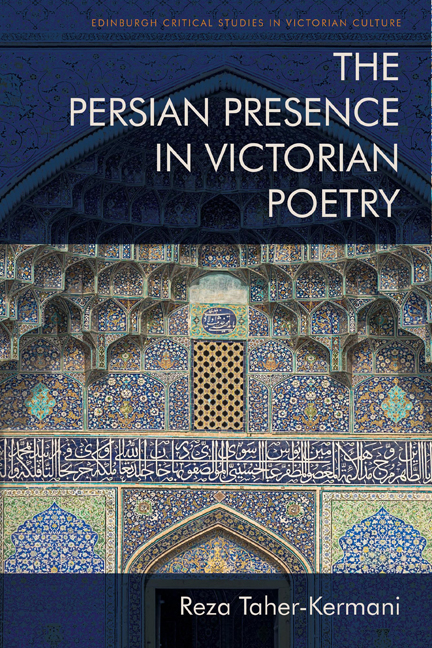Book contents
1 - Persia in the West
Published online by Cambridge University Press: 05 March 2024
Summary
The aim of this chapter is to trace the development of the image of Persia which shaped, and was shaped by, nineteenth-century English poetry. In order to do this, it is necessary to give some account of how knowledge about Persia was acquired and disseminated in the West from (roughly) the fourteenth century onwards; and, just as important, we need to understand the different kinds of knowledge that were available. Generalisations about such broad cultural-historical matters are difficult, and must be put forward with caution. Categories such as ‘the West’ are themselves not uniform or stable; ‘Persia’ itself meant different things in the sixteenth century to a subject of Queen Elizabeth and a citizen of the Venetian Republic. Nevertheless, and with due regard for such differences, this chapter attempts to give some idea of the Persian imaginary as it took hold in Western culture over the course of several centuries. This narrative and descriptive account, however, is not neutral. My argument is that there were two main currents of knowledge about Persia, which sometimes flowed alongside each other, and sometimes met and interpenetrated. One derived from ancient sources, from the Bible, from classical Greek history and literature, and, a little later, from romance. The other derived from what might be called ‘modern’ real-world contacts with Persia, conducted through trade, diplomacy, and travel. Of course, these two currents are not entirely separate, since merchants, diplomats, and missionaries went to Persia with ideas already formed by the older tradition. But the latter modes of engaging with Persia was never able to supersede the former ways of thinking about it. Historical and linguistic scholarship, accelerating from the mid-eighteenth century onwards, and driven in part by a new-found interest in Persia's geopolitical position, did bring the biblical and classical accounts and associations under critical scrutiny. But what is surprising (or perhaps, on reflection, it is not so surprising) is the persistence of an ancient or mythic Persia through the very period in which actual knowledge of the country was increasing. Numerous books and essays were published in the nineteenth century in which Persian history, geography, religion, and social customs were treated in the ‘modern’ spirit of systematic inquiry; translations of major literary works trace an arc from adaptation and appropriation to a more scholarly effort at linguistic and contextual fidelity.
- Type
- Chapter
- Information
- The Persian Presence in Victorian Poetry , pp. 13 - 74Publisher: Edinburgh University PressPrint publication year: 2020



